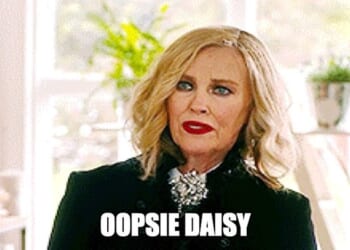Unions were designed to protect the middle class. Unfortunately, like most bureaucracies, the larger they become, the more their intended mission morphs into self-interest and the preservation of the bureaucracy itself.
Firefighters risk injury and their lives daily to protect our communities, charging into infernos to save lives and property. They should not also have to battle their own union’s leadership, which appears more focused on personal gain than on safeguarding its members’ interests. (RELATED: FRANK RICCI: America Has A Robed Politician Problem)
Yet this is the grim reality facing the 334,000 firefighters and paramedics represented by the International Association of Fire Fighters (IAFF). A federal court’s recent decision to deny motions to dismiss in a lawsuit against the IAFF-Financial Corporation (IAFF-FC) underscores credible allegations of corruption, self-dealing, and betrayal of trust—allegations that demand accountability.
The IAFF-FC, a nonprofit tasked with providing financial services like auto insurance and retirement planning to firefighters, is supposed to act as a fiduciary, prioritizing members’ financial security.
However, a federal lawsuit filed by John F. Hughes, a Harvard-educated financial advisor with decades of experience, paints a disturbing picture. Hired to lead the IAFF’s “Wealth Management Initiative” to tailor investment portfolios for members, Hughes discovered that the union’s leadership was less interested in optimal returns for firefighters than in securing “pay-to-play” deals for itself.
According to the amended complaint, IAFF COO Kurt Becker allegedly demanded $250,000 in kickbacks per investment firm, favoring a privately owned financial-services company willing to comply, despite knowing such arrangements could violate Securities and Exchange Commission (SEC) regulations.
Acting with integrity, Hughes warned IAFF leadership that this approach risked “harm for the union’s members, embarrassment for the organization, and negative media exposure.” But rather than putting firefighters first and supporting Hughes, Ed Kelly, general president of the International Association of Fire Fighters, responded by firing him.
Hughes made it clear that his obligations weren’t limited to warning IAFF’s leadership of the risks inherent in their behavior; he also had a duty to report any illegal activity to the SEC. Instead of changing course, Becker allegedly spread false and defamatory claims against him in an orchestrated effort to silence him.
Hughes refused a gag order, and filed a lawsuit alleging tortious interference, Dodd-Frank Act violations, defamation, and wrongful termination. His SEC complaint further details how the IAFF betrayed the trust of rank-and-file firefighters. This filing echoes historical union corruption scandals, like the Department of Justice’s investigation into Jimmy Hoffa’s Teamsters in the 1950s, which prompted the Labor Management Reporting and Disclosure Act to curb such abuses.
Yet members are often unaware of legal filings, and a variety of loopholes have allowed the IAFF leadership to obscure financial dealings from members. Such dealings include collecting millions from muscular dystrophy charities—funds many members thought were going to sick kids stricken with a debilitating disease. Instead, these yearly collected funds from the “Fill the Boot Campaign” were funneled back from the charity to the union’s coffers. The practice was curtailed only after eliciting member outrage when it was finally exposed.
The federal court’s recent ruling to deny the IAFF-FC’s motions to dismiss validates the seriousness of Hughes’ claims, allowing the case to proceed and exposing the union’s alleged misconduct to greater scrutiny.
Union leaders also need to be ethical and avoid even the appearance of impropriety. Yet the IAFF has been plagued by ethical lapses and embroiled in a variety of controversies. These range from FBI investigations to secretly using the talking points of a gear-and-textile manufacturer to address concerns of firefighters regarding potential cancer-causing PFOAs in our gear. Though the union has since changed its position on the gear after a wife and mom Diane Cotter from MA exposed their conflict of interest to the membership.
The IAFF’s website quietly notes that the IAFF-FC receives 20% of gross commissions or fees from members’ purchases of insurance or investments. These funds should benefit dues-paying members, not pad union coffers.
All of which is to say that Hughes’ refusal to sign a gag order, despite pressure to secure severance and health insurance, sets a powerful example. Firefighters face physical flames daily; they shouldn’t fear being scorched by their union’s greed. Unions exist to stand up for the underdogs, but we’ve allowed the bigwigs to start exploiting members in the interest of politics — or for their own gain. It’s time for the IAFF to prioritize its members over personal enrichment and restore the trust that has been so grievously betrayed.
Frank Ricci is a Fellow at Yankee Institute, past union president for New Haven Fire Fighters and a retired battalion chief. He was the lead plaintiff in the landmark Supreme Court case Ricci v. DeStefano. He is the author of Command Presence.
The views and opinions expressed in this commentary are those of the author and do not reflect the official position of the Daily Caller News Foundation.
All content created by the Daily Caller News Foundation, an independent and nonpartisan newswire service, is available without charge to any legitimate news publisher that can provide a large audience. All republished articles must include our logo, our reporter’s byline and their DCNF affiliation. For any questions about our guidelines or partnering with us, please contact licensing@dailycallernewsfoundation.org.




![‘It’s a Recipe for a Hundred Years of National Dominance’: Stephen Miller [WATCH]](https://www.right2024.com/wp-content/uploads/2025/05/Stephen-Miller-Completely-Obliterates-CNN-Host-Over-Her-Illegal-Immigration-350x250.jpg)

![Trump Posts Hilarious Pope Meme, Leftists Immediately Melt Down [WATCH]](https://www.right2024.com/wp-content/uploads/2025/05/Trump-Posts-Hilarious-Pope-Meme-Leftists-Immediately-Melt-Down-WATCH-350x250.jpg)


![Mother Breaks Silence After Three Daughters Killed During Father’s Custody Visit, Memorial Held [WATCH]](https://www.right2024.com/wp-content/uploads/2025/06/Mother-Breaks-Silence-After-Three-Daughters-Killed-During-Fathers-Custody-350x250.jpg)






